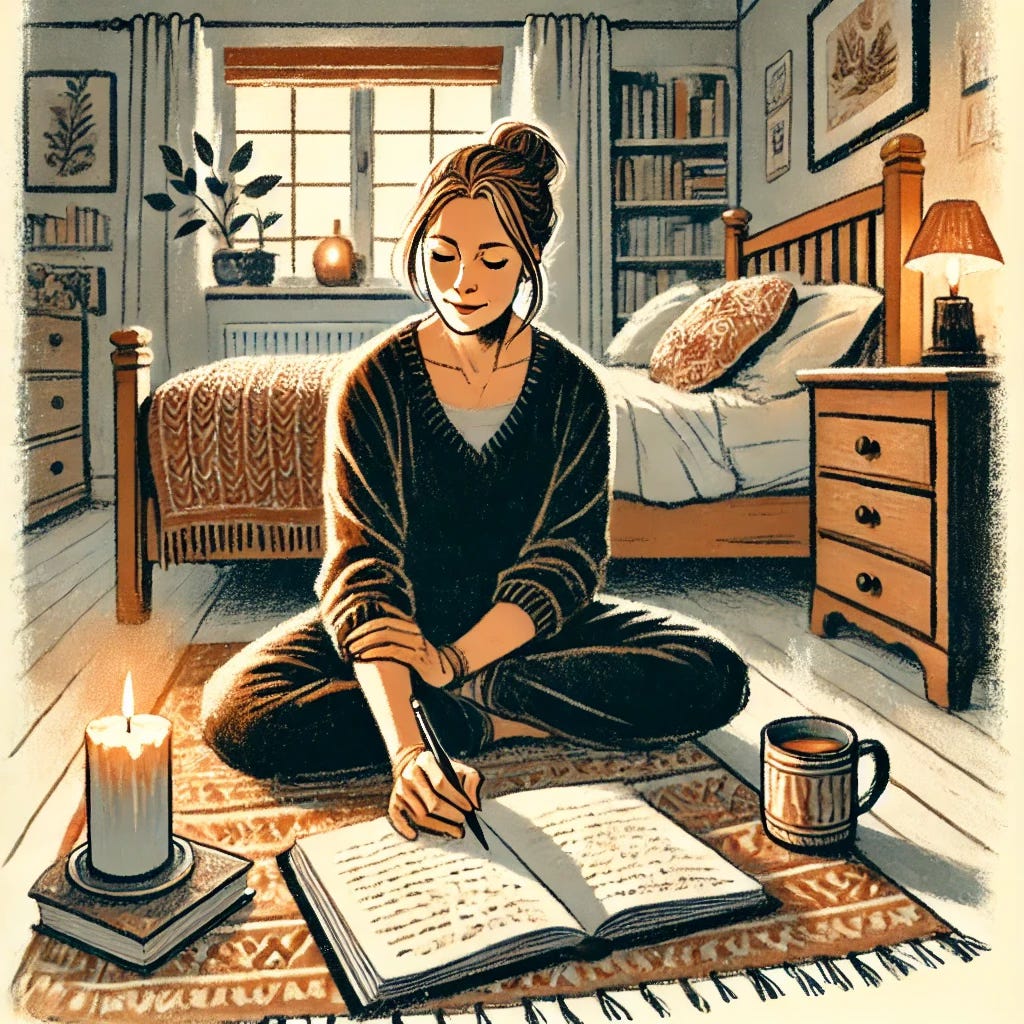Anne stood in the kitchen longer than necessary after rinsing her mug, her thumb grazing the lip of the handle like it might give her instructions on what to do next.
The house held its quiet like a second skin. Not the kind of quiet you relish after a long day. The kind that feels hollowed-out, like the breath has been taken from the walls. Her youngest son had moved out six months ago, and the silence ever since had been deafening. Her husband had left a year before that, without much ceremony, just a folded note and the sound of the garage door rolling shut for the last time.
She wasn’t angry anymore. Just empty in places she didn’t know could be empty.
It had started small—a tightness in her throat during a conversation, the impulse to cry when a dog barked on the TV. Then her therapist had suggested she try IFS work. “Just see who’s there,” she’d said. “You might be surprised who’s been waiting.”
Anne hadn’t expected to find a child.
She had come one afternoon during a walk through the wooded path behind her house. A little girl, maybe seven, crouched at the base of the birch tree near the stream. She wasn’t real, not exactly. But she was there in the way memories sometimes are—sharp around the edges, more feeling than fact.
“I did something bad,” the girl had said, eyes wide.
“What do you mean?” Anne had asked aloud, surprising herself.
“I broke something,” she whispered. “And they stopped seeing me.”
The protectors had always kept that part hidden. Kept her wrapped in routines, in perfection, in obligation. But now, in the stillness, they had stepped aside. Or maybe they were just tired.
Anne knew that weariness. She had lived it.
That evening, Anne sat cross-legged on her bedroom floor with her back against the dresser. She lit a candle—something soft and grounding—and opened her journal.
…
Presence. She grounded in her body. The warmth of the mug in her palms, the quiet hum of the fridge downstairs.
Awareness. She scanned her inner world and found the girl again, curled inward, still scared.
U-Turn. She turned toward her and said, “I believe you. You didn’t do anything wrong.”
Self-Compassion. She reached inward with a tenderness she didn’t know she had. “You’re not bad,” she whispered. “You were never bad.”
Engage. And then she wrote.
…
To the belief that love must be earned through sacrifice. To the legacy of silence passed down from my mother’s mother and hers before that. To the fear that if I speak, I will lose everything … I return you now. Not with resentment, but with reverence. You kept us safe. But you are not mine.
She folded the letter in half, then in half again. Slipped on her coat. Walked barefoot across the damp lawn under the early evening sky.
At the base of the birch, she knelt, pressed her hand to the soil, and buried the letter.
A prayer, a release, a quiet rebellion.
A week later, another part made itself known—not a child this time, but a woman. Middle-aged, sharp-shouldered, worn smooth from years of corporate meetings and expectations. A part shaped not by childhood, but by survival in adulthood.
This part whispered, “We gave it all away and got nothing back.”
Anne placed a hand over her heart. “You were just trying to keep us safe,” she said. “You’re allowed to rest now.”
By spring, the birch had new buds, and Anne had started humming in the kitchen again. Not loudly, just under her breath, as if her body were remembering something joyful.
She didn’t have all the answers. She hadn’t healed it all.
But when she passed the hallway mirror, she no longer looked away.
If you’re carrying what was never yours to begin with, know this:
There is time to return it. There is time to grow something new.
Even now.
Even here.




